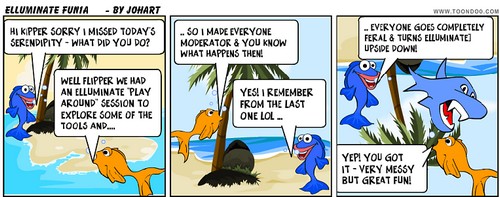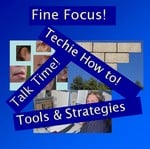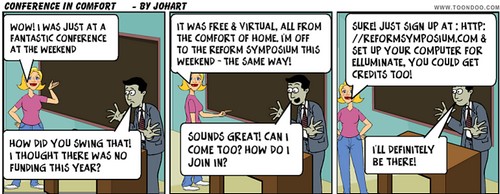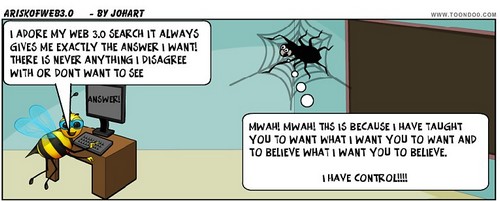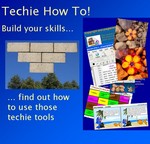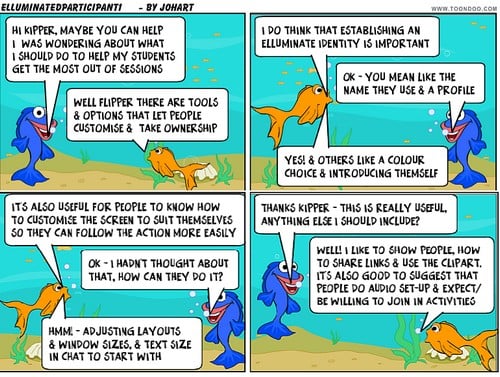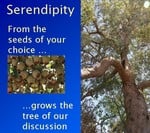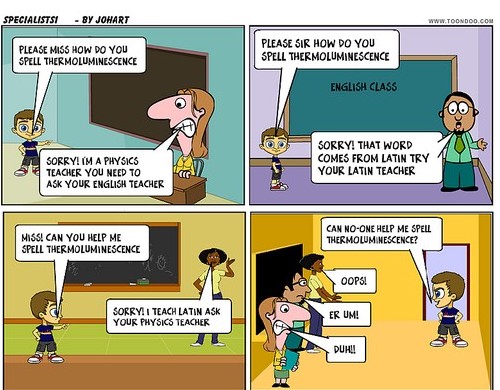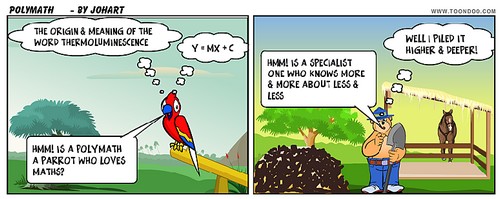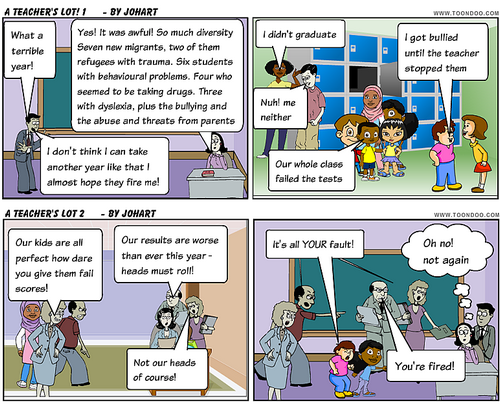Introduction
We were a very small group for our recorded Serendipity unconference webinar this week. I think this was the combination of Thanksgiving in the USA, nearing the end of the academic year in Australia, and the fact that the conference season is still in full swing. We tend to have very low numbers at this time of year and this usually improves after Christmas.
The Session
We didn’t really formally decide on a topic for this session, one just “grew” out of the initial conversation. My interest was sparked by a references to “Sprite’s Site by Jo Freitag (@jofrei). Jo told us about her cartoon character Sprite who is twice exceptional (2E). Sprite is a gifted student with a learning difficulty/difference.
This session was fascinating as Jo told us about (and gave us links to) Sprite’s Site where you can read about Sprite and her learning journey. We also heard about the Gifted Resources website that Jo coordinates. This is an information service for parents, teachers and service providers involved with gifted students. Jo also mentioned #gtchat on Twitter, a weekly forum for discussion around gifted issues.
Conclusion
This session was very exciting for me with lots of “take-aways” about the issues 2E students encounter that will help me with my own students. It has also made me think about how I might better organise the resources I use regularly for literacy and numeracy and make them more accessible for others.
Our Next Session
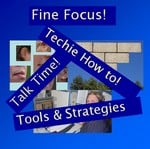 Our next Webinar is an Edublogs “Fine Focus” session. This week we have a treat in store as we will be joined by Sue Waters (@suewaters) the Edublogger. Sue is going to share her ideas and strategies relating to one of the topics suggested on our Wallwisher. The topic is ” How to manage using more than one Web 2.0 tool (incl social networks, virtual worlds and other comms tools) at once for education.” This is guaranteed to be a lively session as Sue’s sessions always are – she certainly always keeps me on my toes as a moderator!
Our next Webinar is an Edublogs “Fine Focus” session. This week we have a treat in store as we will be joined by Sue Waters (@suewaters) the Edublogger. Sue is going to share her ideas and strategies relating to one of the topics suggested on our Wallwisher. The topic is ” How to manage using more than one Web 2.0 tool (incl social networks, virtual worlds and other comms tools) at once for education.” This is guaranteed to be a lively session as Sue’s sessions always are – she certainly always keeps me on my toes as a moderator!
.Join us on Thursday Dec 2nd at 23:00 GMT/UTC (6pm USA EST, Midnight CET) or Friday Dec 3rd at 7am West Aus, 10am NSW, depending on your timezone – in the usual Elluminate room
In the Future
If you are a regular visitor to our webinars you will know that we alternate “Fine Focus” sessions on specific topics with “Serendipity” the unconference sessions where we choose a topic by poll at the start of the session. Sometimes the very fact of being asked for “hot topics” or other ideas for discussion or learning tends to make our minds blank. This has prompted me to start a Serendipity Wallwisher for topic suggestions. Please visit the wall and add your ideas for Serendipity topics so that we have more choices to consider. Some of these ideas might also form the basis for future “Fine Focus” sessions.

